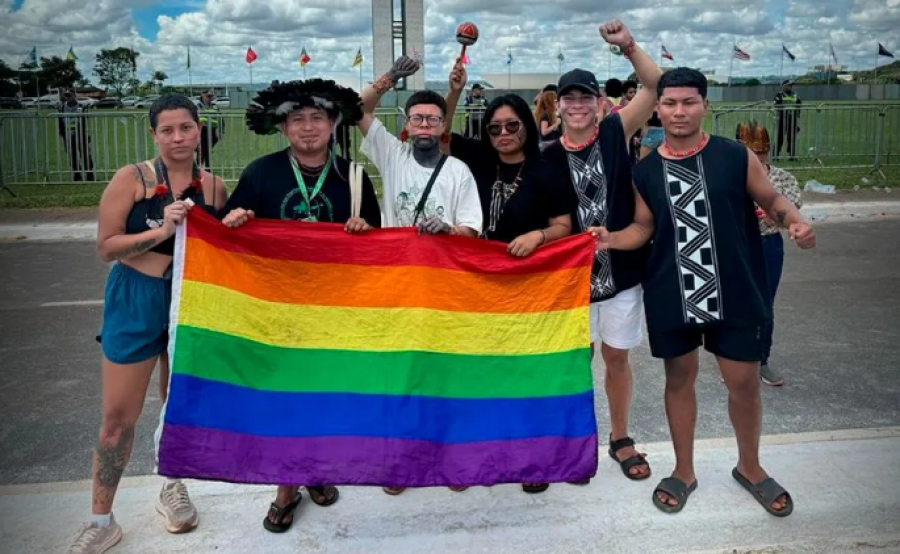As the first International Decade of the World’s Indigenous People came to a close on December 31, the second official Decade began, and indigenous activists hoped that they would celebrate the achievement of the first Decade’s goals before the next 10 years were up.
The U.N. General Assembly adopted a Second International Decade of the World’s Indigenous People on December 20. Days before the Second Decade was declared, frustration over the failures of the first International Decade had come to a head during the final meeting of the U.N. Working Group on the Draft Declaration on the Rights of Indigenous Peoples (WGDD). A four-day hunger strike by six indigenous leaders protested the WGDD’s inability to pass the declaration before its December 31 deadline. The Draft Declaration, one of the primary goals of the International Decade, would solidify international recognition for indigenous peoples’ human rights, including their rights to self-determination. At the close of the first Decade, only two of the declaration’s 46 articles had been passed. Further progress was held up by states.
During the hunger strike, the protesters spoke with a representative of the U.N. High Commissioner on Human Rights and the vice president of the U.N. Commission on Human Rights regarding the future of negotiations on the Draft Declaration. The strikers were promised that the Draft Declaration, which had been written with indigenous input and had been used in all previous negotiations, would serve as the basis for any new rounds of talks. Furthermore, the officials agreed that if the WGDD’s mandate were to be extended into the new Decade (a decision that was expected to be made at the first meeting of the U.N. Commission on Human Rights in March), it would establish new procedures guaranteeing that the voices of indigenous people and organizations unable to go to meetings in Geneva would be heard.
Part of this negotiation process also included a promise by WGDD Chairman Luis-Enrique Chavez of Peru that language describing the hunger strike and indigenous peoples’ concerns would be included in the WGDD’s Final Report. But minutes before the close of the WGDD session, Chavez’s promise was undermined by the United States, with support from Russia, Australia, and Canada, which struck the language from the final report on the grounds that including it would encourage future protests.
“From the point of view of indigenous peoples, there was so much disappointment and even despair at how things had turned out,” said hunger striker Andrea Carmen, executive director of the International Indian Treaty Council, in a report on the negotiations.
Despite her disappointment, Carmen traveled from the WGDD meeting directly to the University of Tulsa in Oklahoma for a celebration of the accomplishments of the International Decade. The educational conference and powwow, organized by the Tulsa Committee on the International Decade of Indigenous People, was one of the few major events to commemorate the close of the first International Decade. Indigenous leaders acknowledged that despite some disappointments, the first Decade had seen many successes.
"This decade has enabled us to bring about a commonality of perspective among indigenous peoples as we stand together unified against the positions of oppressive governments," said Juan Leon, a Quiche Maya representative of Guatemala at the Organization of American States Working Group on the American Declaration on the Rights of Indigenous Peoples.



